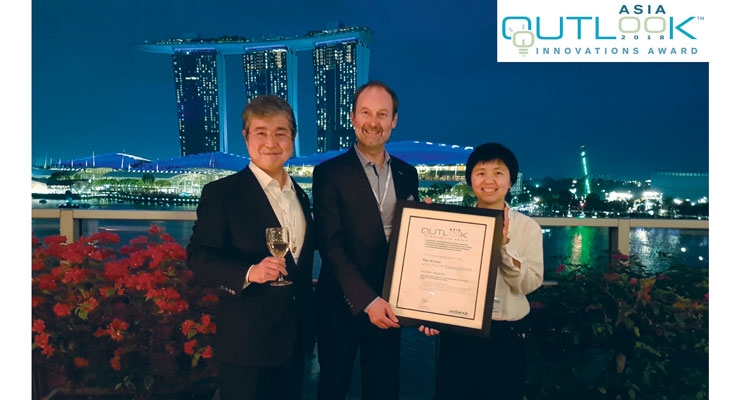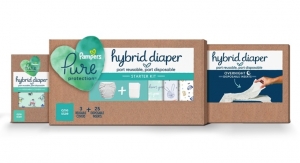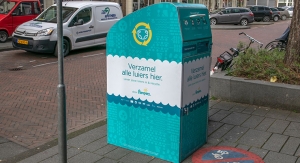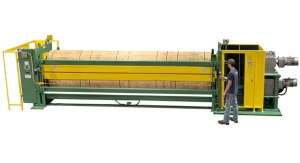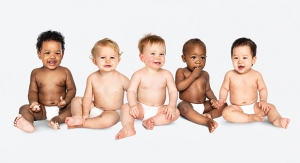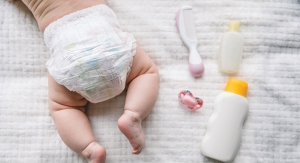Karen McIntyre, Editor06.01.18
The largest manufacturer of hygiene products in Asia and the third largest in the world, Unicharm continues to earmark much of its resources on the fast-growing Asian market where it focuses on improved nonwoven fabrics and better absorbent material processing and forming technology, allowing it to launch high quality products that are popular with consumers in Japan and internationally. As its domestic market of Japan continues to be characterized by low birth rates and high market penetrations in many hygiene categories, Unicharm has spent the last decade expanding its role in markets like China, Vietnam and India. This strategy continues to pay off with sales outside of Japan continuing to grow strongly. Currently, Unicharm’s sales in Asia are on par with its sales within Japan—both represent just under 43% of sales while sales outside of Asia comprise about 14% of Unicharm’s business.
CEO Takahisha Takahara has led the company since June 2004 and before that was the president of the company since 2001. He has been at Unicharm since 1991. During the time, he has seen the company’s profile rise both within Asia and around the world through the launch of new products and the acquisition of news businesses. He spoke with Nonwovens Industry about his company’s plans for Asia, the changing needs of the diaper market and the growing importance of markets like adult incontinence and pet care.
Nonwovens Industry (NWI): Please discuss recent success Unicharm has had in the disposable market, particularly in China. Did you have to change your strategy in China when it came to growing your diaper business?
Takahisha Takahara (TT): In Japan, a baby uses about 5.4 pieces of disposable diapers on daily basis for about 36 months, and the mother and father can evaluate the product every time they change a diaper. Therefore, it is important to continuously introduce innovative and high-quality products into the market. In recent years, the number of consumers who emphasize emotional value, such as “safety” and “security” has increased, and they think raw materials and country of origin are important.
In Japan, “high quality needs” in the diaper market is increasing every year due to late child-bearing and declining birthrates. A new value proposition to meet such safety and security needs, a premium diaper “Natural Moony” containing organic cotton and “Moony Air-fit for low weight birth infants” have been introduced, and they have gained popularity from consumers.
In China, demand for high-quality Japanese disposable diapers is increasing due to the growing needs for consumer safety and security. The premium disposable diapers “Natural Moony” sold in Japan in October 2016 were exported to China from December of the same year and received high praise from Chinese consumers. In China’s largest EC sale event November 11 “singles’ day” the brand “Moony” was sold in the diaper category ranking at No.1 position in T-mall International flagship stores for consecutive years in 2016 and 2017.
In China, sales channels are changing rapidly from actual stores to e-commerce. We will continue to work with e-commerce companies to respond flexibly to changes in consumer purchasing behavior. The safety and security needs of consumers in China are expected to continue. Japan will continue to strengthen exports of Japanese products “Moony” to China. In addition, we intend to make a new value proposition while promoting the spread of pants type diapers in China.
NWI: How have trends in the Chinese disposable market, like softness, influenced design of Unicharm diapers in other parts of the world?
TT: Common needs for disposable diapers are that they do not leak the baby’s urine or feces, but also gentle to the skin. These are a world-wide common needs. The “softness” and “friendly to the skin” is one of the basic functions of the diaper. So it is not a particular need to China.
We have set up market research, R&D and marketing functions around the world to explore local needs. Based on the information obtained from these regions, Unicharm aims to supply the most suitable products to the field. The information obtained in each area is shared throughout the group and is mutually utilized.
NWI: Why do you think pants styles diapers are so popular in Asia? Do you think this trend will expand to Europe and North America?
TT: Due to the fact that we were able to introduce pants type diapers before the spread and penetration of the idea of “Disposable diapers that are fastened by tape” such as in the U.S. and Europe, it allowed us to have a pants oriented market in Asia.
Pants type diapers fit perfectly on to the body and the baby can easily move around. Also, leaks are difficult to occur and can be replaced even while standing. The users of disposable diapers are always changing, and we believe appropriate marketing will continue to expand the use of pants.
NWI: Can you tell me about your adult incontinence business? Where do you see the most growth for this?
TT: Currently, Japan has a population of about 34 million people over the age of 65, which accounts for about 26.5% of the total population, and is an extremely elderly society in the world. In 2020, about 30% of Japan’s total population is projected to be older than 65 years old, and the extension of healthy life expectancy is a national goal. In such a situation, appropriate incontinence care is an important factor in prolonging the healthy life expectancy, and the demand for adult disposable diapers is expected to increase accordingly.
In the adult incontinence business, three types are provided for the user’s ADL (activities of daily living), such as light, medium, and heavy. We also propose a combination of use with “outer” (outer diaper) and “inner” (inside pad), which is recognized as an ISO international standard (ISO 15621) for use of diapers and pads.
At present, for the incontinence market, the high growth market is light incontinence. In the super-(elderly) aged society, it is growing mainly among active seniors because of the desire for a healthy, self-motivated environment, and the tendency to care for excrement problems from the light condition of the symptoms.
The adult incontinence business for Unicharm is developed in 15 countries around the world, including Japan, and the pants type diapers are widely used as products supporting the self-reliance of users. Innerwear (inside pad) used in disposable diapers is supported by reducing daily costs and reducing the burden of changing diapers. The Japanese excrement care system has been developed in Taiwan also.
In the Asian region, aging is expected to increase faster than Japan’s trend, and demand for adult incontinence care products is expected to become full-scale. Unicharm aims to popularize the incontinence care model which was learned in Japan due to its world’s fastest aging trend into Asia.
NWI: How have you changed and improved the design of your adult diapers and other products for adults?
TT: Since the launch of adult disposable diapers “Lifree” in 1987, our company has been driving the expansion of the market for adult diapers in Japan through the creation of new value and sales of products that enhance product functions.
In 1995, we proposed the concept of “Aiming for zero bedridden “ by introducing “Lifree Rehabilitation Pants,” which contributed to the reduction of physical, economic and spiritual burdens of both care-receivers and care-givers.
In addition, in 1997, we introduced for the first time “Charm Napkin SAWAYAKA Liner,” and it was accepted as a product to care for slight urine leakage symptoms, and it was used in daily life.
Currently, we introduced light incontinence products for men starting in 2014 and light soiling protection from 2017. Those new incontinence categories are attracting consumers’ attention.
NWI: Tell me about your business in Southeast Asia, like your Diana business in Vietnam. Have these countries been important to your growth?
TT: Southeast Asian countries have a huge young generation population, and consumption is increasing as per capita according to income increase. However, the use of disposable diapers and sanitary products is still premature, and high growth is expected. In this sense, the importance of Southeast Asian countries is high.
NWI: Do you consider India to be the next important growth market for diapers and other hygiene products? Explain Unicharm’s efforts in this country.
TT: India is a superpower with a population of about 1.3 billion, and the number of births is rapidly increasing to about 27 million. In the future, we think that the Indian market will be bigger than the Chinese market and is a growing market for the next generation.
Our business in India has steadily expanded sales and share and we achieved a fiscal surplus in 2017. The third India plant is scheduled to operate in the West area this year. In India, the prevalence of disposable diapers is still low, and we are promoting the spread of pants type disposable diapers that is our strength. In addition, the share of sanitary products has been expanded with new value proposals, and the market has been pioneered by promoting the use of early stage education and other activities to users who have not tried it yet.
NWI: You have been a very strong leader in the field of absorbent products recycling. Can you tell me about your efforts in Japan as well as your new initiative in Vietnam?
TT: The recycling of resources is recognized as an important issue. In Japan, some of the loss materials in the manufacturing process of disposable diapers and sanitary products are used as raw materials for pet products. In Vietnam, we have a plan that a part of the loss material in the manufacturing process of disposable diapers and sanitary products is divided into pulp and polymer by using a separation machine and is used as raw materials.
NWI: Do you think that diaper recycling on a large scale is possible? What are some of the challenges it will face?
TT: I think it is possible to recycle diapers in large. We are working to build a recycling-oriented model while ensuring safety as a sanitary product.
We have developed a recycling technology for used diapers. It is the industry’s first unique recycling technology to extract hygienic pulp from low-quality pulp of used diapers. This recycling system can contribute to the improvement of the global environment, such as reducing waste and CO2 emissions and recycling natural resources. According to the environmental impact assessment, reducing CO2 emissions by about 30% compared with conventional incineration.
At present, in Shibushi City, Kagoshima Prefecture, in cooperation with the local government and collection companies, we are working to conduct pilot operations of the recycling system, aiming to commercialize the recycling system at around 2020.
There are two major challenges in promoting this recycling. One is a separate collection and collection, which is indispensable for the cooperation of local governments and residents. The second is psychological resistance to using recycled pulp. We plan to work with local governments to promote sorting and collection of waste and to raise awareness of the safety of products using recycled materials.
NWI: What are some of the other important issues facing the hygiene market? How is Unicharm addressing these issues?
TT: Responding to changes in consumer selection and purchasing habits is important. In particular, millennials and younger generation Z focus more on information from their close relationship that is shared by friends and social networks than conventional broadcasting media information. If we cannot meet their requirement, we may lose the premium image. We want to strive to develop a continuous product development and brand building.
NWI: Please tell me a little bit about your pet care business? Do you aim to grow this business? Why is it so important?
TT: We are working to develop products and create the market that comprehensively supports pet life such as dog and cat toiletries and food. In Japan, we have the No.1 market share in pet toiletries and pet foods by introducing high-value-added products.
In North America, sales are growing by concentrating on high-value-added businesses such as flea and tick medicine, which is one of the core business, and snacks for cats equipped with Japanese technology.
We aim to further expand the pet care business by focusing on business development in Asia from now on.
In Japan, dogs, cats, and other pets have become an irreplaceable member of the family, as the birthrate decline and aging population continue to grow. It has been noticed recently that contact with pets has a good impact on health conditions of elderly people. It has been confirmed that preventive medicine such as prevention of dementia, stable blood pressure and pulse, and more opportunities to communicate with other owners through pets can be found to be effective for mental health and social participation.
Our company is engaged in business activities with the aim of achieving the health and longevity of the elderly by extending the healthy life expectancy of pets by realizing “Cohesive society for both human and pet.” Globally, the growth of income levels and the aging of the population are expected to increase the pet care market more than ever.
CEO Takahisha Takahara has led the company since June 2004 and before that was the president of the company since 2001. He has been at Unicharm since 1991. During the time, he has seen the company’s profile rise both within Asia and around the world through the launch of new products and the acquisition of news businesses. He spoke with Nonwovens Industry about his company’s plans for Asia, the changing needs of the diaper market and the growing importance of markets like adult incontinence and pet care.
Nonwovens Industry (NWI): Please discuss recent success Unicharm has had in the disposable market, particularly in China. Did you have to change your strategy in China when it came to growing your diaper business?
Takahisha Takahara (TT): In Japan, a baby uses about 5.4 pieces of disposable diapers on daily basis for about 36 months, and the mother and father can evaluate the product every time they change a diaper. Therefore, it is important to continuously introduce innovative and high-quality products into the market. In recent years, the number of consumers who emphasize emotional value, such as “safety” and “security” has increased, and they think raw materials and country of origin are important.
In Japan, “high quality needs” in the diaper market is increasing every year due to late child-bearing and declining birthrates. A new value proposition to meet such safety and security needs, a premium diaper “Natural Moony” containing organic cotton and “Moony Air-fit for low weight birth infants” have been introduced, and they have gained popularity from consumers.
In China, demand for high-quality Japanese disposable diapers is increasing due to the growing needs for consumer safety and security. The premium disposable diapers “Natural Moony” sold in Japan in October 2016 were exported to China from December of the same year and received high praise from Chinese consumers. In China’s largest EC sale event November 11 “singles’ day” the brand “Moony” was sold in the diaper category ranking at No.1 position in T-mall International flagship stores for consecutive years in 2016 and 2017.
In China, sales channels are changing rapidly from actual stores to e-commerce. We will continue to work with e-commerce companies to respond flexibly to changes in consumer purchasing behavior. The safety and security needs of consumers in China are expected to continue. Japan will continue to strengthen exports of Japanese products “Moony” to China. In addition, we intend to make a new value proposition while promoting the spread of pants type diapers in China.
NWI: How have trends in the Chinese disposable market, like softness, influenced design of Unicharm diapers in other parts of the world?
TT: Common needs for disposable diapers are that they do not leak the baby’s urine or feces, but also gentle to the skin. These are a world-wide common needs. The “softness” and “friendly to the skin” is one of the basic functions of the diaper. So it is not a particular need to China.
We have set up market research, R&D and marketing functions around the world to explore local needs. Based on the information obtained from these regions, Unicharm aims to supply the most suitable products to the field. The information obtained in each area is shared throughout the group and is mutually utilized.
NWI: Why do you think pants styles diapers are so popular in Asia? Do you think this trend will expand to Europe and North America?
TT: Due to the fact that we were able to introduce pants type diapers before the spread and penetration of the idea of “Disposable diapers that are fastened by tape” such as in the U.S. and Europe, it allowed us to have a pants oriented market in Asia.
Pants type diapers fit perfectly on to the body and the baby can easily move around. Also, leaks are difficult to occur and can be replaced even while standing. The users of disposable diapers are always changing, and we believe appropriate marketing will continue to expand the use of pants.
NWI: Can you tell me about your adult incontinence business? Where do you see the most growth for this?
TT: Currently, Japan has a population of about 34 million people over the age of 65, which accounts for about 26.5% of the total population, and is an extremely elderly society in the world. In 2020, about 30% of Japan’s total population is projected to be older than 65 years old, and the extension of healthy life expectancy is a national goal. In such a situation, appropriate incontinence care is an important factor in prolonging the healthy life expectancy, and the demand for adult disposable diapers is expected to increase accordingly.
In the adult incontinence business, three types are provided for the user’s ADL (activities of daily living), such as light, medium, and heavy. We also propose a combination of use with “outer” (outer diaper) and “inner” (inside pad), which is recognized as an ISO international standard (ISO 15621) for use of diapers and pads.
At present, for the incontinence market, the high growth market is light incontinence. In the super-(elderly) aged society, it is growing mainly among active seniors because of the desire for a healthy, self-motivated environment, and the tendency to care for excrement problems from the light condition of the symptoms.
The adult incontinence business for Unicharm is developed in 15 countries around the world, including Japan, and the pants type diapers are widely used as products supporting the self-reliance of users. Innerwear (inside pad) used in disposable diapers is supported by reducing daily costs and reducing the burden of changing diapers. The Japanese excrement care system has been developed in Taiwan also.
In the Asian region, aging is expected to increase faster than Japan’s trend, and demand for adult incontinence care products is expected to become full-scale. Unicharm aims to popularize the incontinence care model which was learned in Japan due to its world’s fastest aging trend into Asia.
NWI: How have you changed and improved the design of your adult diapers and other products for adults?
TT: Since the launch of adult disposable diapers “Lifree” in 1987, our company has been driving the expansion of the market for adult diapers in Japan through the creation of new value and sales of products that enhance product functions.
In 1995, we proposed the concept of “Aiming for zero bedridden “ by introducing “Lifree Rehabilitation Pants,” which contributed to the reduction of physical, economic and spiritual burdens of both care-receivers and care-givers.
In addition, in 1997, we introduced for the first time “Charm Napkin SAWAYAKA Liner,” and it was accepted as a product to care for slight urine leakage symptoms, and it was used in daily life.
Currently, we introduced light incontinence products for men starting in 2014 and light soiling protection from 2017. Those new incontinence categories are attracting consumers’ attention.
NWI: Tell me about your business in Southeast Asia, like your Diana business in Vietnam. Have these countries been important to your growth?
TT: Southeast Asian countries have a huge young generation population, and consumption is increasing as per capita according to income increase. However, the use of disposable diapers and sanitary products is still premature, and high growth is expected. In this sense, the importance of Southeast Asian countries is high.
NWI: Do you consider India to be the next important growth market for diapers and other hygiene products? Explain Unicharm’s efforts in this country.
TT: India is a superpower with a population of about 1.3 billion, and the number of births is rapidly increasing to about 27 million. In the future, we think that the Indian market will be bigger than the Chinese market and is a growing market for the next generation.
Our business in India has steadily expanded sales and share and we achieved a fiscal surplus in 2017. The third India plant is scheduled to operate in the West area this year. In India, the prevalence of disposable diapers is still low, and we are promoting the spread of pants type disposable diapers that is our strength. In addition, the share of sanitary products has been expanded with new value proposals, and the market has been pioneered by promoting the use of early stage education and other activities to users who have not tried it yet.
NWI: You have been a very strong leader in the field of absorbent products recycling. Can you tell me about your efforts in Japan as well as your new initiative in Vietnam?
TT: The recycling of resources is recognized as an important issue. In Japan, some of the loss materials in the manufacturing process of disposable diapers and sanitary products are used as raw materials for pet products. In Vietnam, we have a plan that a part of the loss material in the manufacturing process of disposable diapers and sanitary products is divided into pulp and polymer by using a separation machine and is used as raw materials.
NWI: Do you think that diaper recycling on a large scale is possible? What are some of the challenges it will face?
TT: I think it is possible to recycle diapers in large. We are working to build a recycling-oriented model while ensuring safety as a sanitary product.
We have developed a recycling technology for used diapers. It is the industry’s first unique recycling technology to extract hygienic pulp from low-quality pulp of used diapers. This recycling system can contribute to the improvement of the global environment, such as reducing waste and CO2 emissions and recycling natural resources. According to the environmental impact assessment, reducing CO2 emissions by about 30% compared with conventional incineration.
At present, in Shibushi City, Kagoshima Prefecture, in cooperation with the local government and collection companies, we are working to conduct pilot operations of the recycling system, aiming to commercialize the recycling system at around 2020.
There are two major challenges in promoting this recycling. One is a separate collection and collection, which is indispensable for the cooperation of local governments and residents. The second is psychological resistance to using recycled pulp. We plan to work with local governments to promote sorting and collection of waste and to raise awareness of the safety of products using recycled materials.
NWI: What are some of the other important issues facing the hygiene market? How is Unicharm addressing these issues?
TT: Responding to changes in consumer selection and purchasing habits is important. In particular, millennials and younger generation Z focus more on information from their close relationship that is shared by friends and social networks than conventional broadcasting media information. If we cannot meet their requirement, we may lose the premium image. We want to strive to develop a continuous product development and brand building.
NWI: Please tell me a little bit about your pet care business? Do you aim to grow this business? Why is it so important?
TT: We are working to develop products and create the market that comprehensively supports pet life such as dog and cat toiletries and food. In Japan, we have the No.1 market share in pet toiletries and pet foods by introducing high-value-added products.
In North America, sales are growing by concentrating on high-value-added businesses such as flea and tick medicine, which is one of the core business, and snacks for cats equipped with Japanese technology.
We aim to further expand the pet care business by focusing on business development in Asia from now on.
In Japan, dogs, cats, and other pets have become an irreplaceable member of the family, as the birthrate decline and aging population continue to grow. It has been noticed recently that contact with pets has a good impact on health conditions of elderly people. It has been confirmed that preventive medicine such as prevention of dementia, stable blood pressure and pulse, and more opportunities to communicate with other owners through pets can be found to be effective for mental health and social participation.
Our company is engaged in business activities with the aim of achieving the health and longevity of the elderly by extending the healthy life expectancy of pets by realizing “Cohesive society for both human and pet.” Globally, the growth of income levels and the aging of the population are expected to increase the pet care market more than ever.

